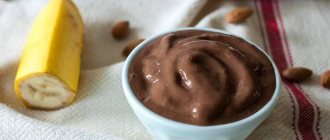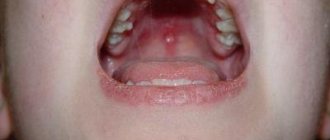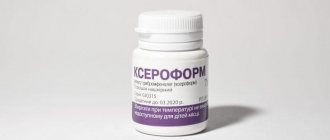Gut probiotics are often mentioned in advertisements, magazines, and health websites, especially those that focus on gastrointestinal health.
But what do we really know about probiotics and how they affect our body, digestion and overall health?
According to scientists, probiotics can improve the condition of the gastrointestinal tract, strengthen immune functions, increase resistance to infections and allergens, and reduce the number of pathogens in the body (). They can also affect our mood and cognitive function.
Probiotics and prebiotics for the treatment of constipation in children
Constipation in children is a very common problem. Our intestines are home to billions of bacteria. And an imbalance in their balance, called dysbiosis in medicine, can cause intestinal dysfunction and cause constipation.
Signs of constipation in children vary.
These include abdominal pain, pain and tension during bowel movements, hard stool or slow passage.
Other problems include poor concentration, fatigue, bad breath, skin problems, muscle pain and headaches, which are a consequence of the reabsorption of toxins from the intestines due to constipation.
Constipation can affect a child's digestion, weight, and daily life, making treating the problem and preventing it from recurring in the future even more important.
Treatment of constipation in a child
Childhood constipation is mainly treated with a combination of oral laxatives to soften the stool. But laxatives are necessary only for an emergency solution to the problem, and in the long term they aggravate the disease, as they lead to addiction and disruption of intestinal motility.
Thus, it is necessary to look for other treatment options that target the cause of the disease.
Probiotics
Most of the bacteria that inhabit the large intestine are bifidobacteria and lactobacilli, so it is logical to assume that probiotics with strains belonging to these species will help a child get rid of constipation.
Some probiotics produce lactic acid and short-chain fatty acids (SCFAs), which lower intestinal pH, increase peristalsis, speed up fecal transit, and restore regular bowel movements.
The GI tract tries to repair itself as quickly as possible, but even in healthy adults with healthy immune function, this can take 1-6 months.
Some species of bifidobacteria and lactobacilli improve the regulation of intestinal and mucosal secretions by converting bound bile salts into free bile salts. These free bile salts attract more water, preventing it from being absorbed in the intestines, which softens the stool and helps with bowel movements.
While there are many possible causes of constipation, and therefore there is no “one size fits all” solution, probiotics have been shown to be effective for constipation. However, not all probiotics are created equal. Different bacteria are responsible for their “sphere” and therefore only probiotics with strains of certain bacteria will help in the fight against constipation.
With this in mind, medications are often a combination of probiotics, which is especially effective.
In addition, we are all different and what works for one may not give any results for another organism. Therefore, it is recommended that you do your own research and experimentation to help determine what works best for you.
Probiotics for constipation in children
Many parents know that constipation is a common and annoying problem in babies and children. There are certain strains of probiotic bacteria that have been clinically proven to be effective in relieving constipation in children. They are also suitable for treating constipation in adults, so it is recommended that both children and adults take probiotics.
Bifidobacteria
One of the main types of bacteria that form healthy intestinal flora in infants is Bifidobacteria. This strain is the dominant and most important of the beneficial bacteria in the gut. Occurs in healthy newborns and children in the first years of their life.
According to a study conducted by American scientists, taking probiotic strains of bifidobacteria contributed to more frequent bowel movements.
B. infantis is one of the dominant bacterial species found in the intestines of healthy children.
Lactobacilli (Lactobacilli)
We are closely familiar with this strain of bacteria - they are found in yogurt, which is sold in grocery stores. Lactobacilli help in the treatment of chronic constipation in both children and adults.
Patients in the study reported a significant reduction in constipation after two weeks of regularly taking lactobacilli supplements.
Lactobacilli and bifidobacteria help soften stools. They also increase the frequency of bowel movements in children with irritable bowel syndrome or chronic constipation.
Recommended strains of bacteria for constipation
Considering the huge number of drugs and companies producing probiotics, it is difficult to name any specific drugs, but when choosing, it is recommended to focus on the composition below.
Probiotics recommended for constipation in children should contain the following strains of bacteria:
- Bifidobacterium bifidum W23.
- Bifidobacterium lactis W52.
- Bifidobacterium longum W108.
- Lactobacillus W79.
- Lactobacillus plantarum W62.
- Lactobacillus rhamnosus W71.
The dosage should always be determined by a pediatrician, who takes into account the condition of the child’s body and medical history.
Probiotics for adults
Probiotic products can be formulated as capsules, tablets, powders, and are regulated as dietary supplements.
Clinical studies often demonstrate that it is more effective to use a complex of several types of probiotics to improve local microflora.
California Gold Nutrition, LactoBif, Probiotics, 5 Billion CFU, 60 Vegetarian Capsules
Buy with a discount on iHerb
This complex contains 8 active and clinically studied strains of probiotics (5 types of lactobacilli and 3 types of bifidobacteria), which are extremely resistant to enzymes and gastric juice.
Now Foods, Probiotic-10, 25 Billion, 50 Veggie Caps
Buy with a discount on iHerb
Probiotic-10 from NOW is a balanced spectrum of living organisms consisting of acid-protective bacterial strains. They maintain the integrity of the intestinal lining, promote healthy peristalsis and are involved in the detoxification process. Probiotic-10 uses bacterial strains with clinically proven beneficial effects on the immune system.
Garden of Life, Probiotics for Women, 50 Billion CFU, 15 Probiotics, 30 Vegetarian Capsules
Buy at a discount on iHerb
The complex was developed by Dr. David Perlmutter. David Perlmutter is a fellow of the American College of Nutrition, an expert on the human microbiome, and a first-class neurologist. Author of Food and the Brain, a 2013 New York Times bestseller.
The doctor developed this unique formula specifically for women and provided it with 16 strains of probiotics that are resistant to gastric juice and bile, improving the condition of the digestive and immune systems.
Garden of Life, Probiotics for Men, 50 Billion CFU, 15 Probiotics, 30 Vegetarian Capsules
Buy at a discount on iHerb
Dr. Perlmutter created this unique formula specifically for men with a rich array of beneficial probiotics made from a variety of stomach acid and bile resistant strains to support colon health, reduce gas, and support digestive and immune system health.
Garden of Life, Raw Probiotics, Vaginal Health, 30 Vegetarian Capsules
Buy at a discount on iHerb
This drug contains 38 strains of lacto- and bifidobacteria to maintain the balance of the microflora of the female vagina and the health of the genitourinary system.
Food Sources of Probiotic Bacteria
Eating fermented foods is one way to take probiotics daily. These include yogurt, kefir, cottage cheese and sauerkraut. Natural soy sauce, miso and tempeh are also easy to find in large supermarkets.
All of these foods are a good source of probiotics for your child, which can be added to your child’s daily diet.
But foods likely won't contain enough probiotic bacteria to restore the GI tract after a breakdown, and won't compete with pathogenic bacteria that have already taken hold and are causing symptoms such as constipation or diarrhea.
Probiotics for children
Garden of Life, Probiotics for Kids, Organic Kids+, Delicious Organic Strawberry Banana, 30 Gummies
David Perlmutter created this unique immune and digestive support formula specifically for children. Each chewable tablet is USDA certified organic, tastes great, and contains no sugar. The probiotic contains 14 probiotics (5 billion CFU), vitamins C, D and prebiotic fibers, which create a favorable environment for the proliferation of beneficial bacteria.
Buy with a discount on iHerb
Do gut probiotics help with constipation?
When intestinal function is impaired, a phenomenon called constipation is observed. The reason for this may be various pathologies of the gastrointestinal tract, dysbacteriosis, which occurs as a result of a decrease in the beneficial microorganisms populating the microflora and the introduction of harmful bacteria there. This condition is often accompanied by bloating and painful cramps in the abdomen, and the release of gas. To eliminate unpleasant symptoms, it is advisable to use probiotics.
Definition of probiotics
Probiotics are a range of medications that contain live bacteria that regulate the number of beneficial microorganisms that populate the microflora of different parts of the intestine.
Regular consumption of probiotics improves functioning throughout the entire digestive tract, helps strengthen the body’s immune forces, as well as the production of vitamins, folic acid, biotin, and also improves the absorption of nutrients.
Probiotics can be found in foods. A large number of beneficial bifidobacteria are found in fermented milk drinks: yogurt, sour cream, kefir.
The pharmaceutical industry creates drugs with ready-made probiotics. They are quite easy to use, begin to act almost immediately, and are well tolerated by the body.
Many patients, in search of a cure for irregular bowel movements, resort to various medications, which often do not have the desired effect.
They all want to find a medicine that will constantly work and make the act of bowel movement more pleasant. Most products give a one-time effect and problems with stool remain.
Only probiotics guarantee good relaxation of the intestines, and they can be consumed on an ongoing basis.
The choice of drug should be entrusted to a specialist. After all, individual intolerance to some medications may occur.
Nutrient Absorption
Some types of probiotic bacteria directly produce nutrients such as folate, while others can create an environment that promotes better nutrient absorption in the gut.
Among the nutrients that are produced or made more available by probiotic bacteria are:
- Riboflavin (vitamin B2)
- Vitamin B12
- Folic Acid (Vitamin B9)
- Vitamin D3
- Iron
- Calcium
- Phosphorus
- Zinc
- Magnesium
The mechanism of action of probiotics on the intestines
In order to find out how probiotics affect the intestines and other organs of the digestive tract, while eliminating constipation, it is necessary to determine the effect of these medications on the body.
Probiotics, settling in the large and small intestines, enhance the growth of beneficial microflora, preventing harmful bacteria, yeast and fungi from developing, significantly reducing their numbers. Dysbacteriosis goes away, thereby normalizing the patient's stool.
1. Thanks to beneficial microorganisms, food is well absorbed and digested.
2. Bile salts are broken down.
3. Regular intake of probiotics normalizes intestinal motor function.
4. Food processed by the body passes faster through the intestines.
5. Local immunity is activated, inflammatory processes subside, the mucous layer becomes stronger, which leads to positive changes in the functioning of the gastrointestinal tract, and as a result, the elimination of constipation.
6. Beneficial microflora inhibits the effect of Helicobacter pylori, which provokes gastritis, which in turn leads to stool disorders.
7. The microflora undermined after long-term use of antibacterial drugs is restored.
Probiotic preparations can soften stool and speed up its movement through the intestines, thereby helping patients feel relief from constipation.
The effect does not occur immediately; you need to take medications for several weeks. Probiotics solve problems such as rumbling, flatulence, a feeling of fullness and other discomfort that occurs with constipation.
Benefits of Probiotics
Probiotics have a great impact on human health. With the systemic use of drugs, a number of improvements in organs and systems are observed:
— The intestinal mucosa is restored after increased exposure to antibacterial drugs;
— There is an active production of vitamins and minerals;
- It is possible to reduce cholesterol;
— Probiotics reduce inflammation in tissues, remove allergens and substances toxic to the body;
— Live bacteria activates the process of producing digestive enzymes, as a result of which food is digested much faster and safely leaves the body without causing problems with stool;
— The level of acidity in the intestines gradually decreases to normal levels;
— Thanks to the drug, enhanced regeneration of the mucous membrane occurs throughout the gastrointestinal tract;
— By activating the defenses, the body fights colds faster;
— Reduce intoxication on the body in case of poisoning and other conditions.
It is worth noting that probiotic preparations should be taken in courses not only for functional disorders of the intestines, but also as a prophylactic agent for possible malfunctions or poor nutrition. Living microorganisms will improve stool and improve motor skills.
Why are probiotics so important?
- Prevents the growth of pathogenic microorganisms. Lactobacilli synthesize organic acids, maintain an acidic environment in the intestines, produce hydrogen peroxide and antibiotic-like substances, thereby preventing the spread and proliferation of infection.
- Strengthen immunity. Being foreign organisms, upon contact with the epithelium of the intestinal wall, they activate protective mechanisms. Lactobacilli and other wall microflora accelerate the synthesis of antibodies, lysozyme, interferons, cytokines and activate phagocytosis. Phagacytosis is the process of recognition, capture and absorption of microbes and foreign microorganisms specifically designed by cells of the immune system.
- Participate in membrane digestion. Lactobacilli produce enzymes that break down milk sugar and prevent lactose deficiency. Without an adequate amount of these microorganisms, milk is not digested normally.
- Probiotics promote the metabolism of bile acids. Under the influence of lacto- and bifidobacteria in the distal parts of the colon, bile acids are transformed and stimulate the secretion of water into the intestinal lumen. This prevents stool dehydration. As is known, solid feces are poorly excreted from the body, damage the intestinal mucosa, and are one of the causes of anal fissures and other pathologies.
- Thanks to microflora, the large intestine hydrolyzes cholesterol, breaks down toxins and nutrients undigested in the small intestine.
- Participate in intestinal detoxification. Probiotics help reduce the permeability of vascular and tissue barriers to toxins and pathogenic microorganisms. During their life, lactobacilli produce gases and acids, thereby activating intestinal motility.
- Lactobacilli and bifidobacteria, along with other representatives of normal intestinal microflora, are involved in the synthesis and absorption of vitamins K, B, E, PP.
List of probiotics that relieve constipation
Based on the type of microorganisms included in the medication, the following types of probiotics are distinguished:
1. Medicines with lactobacilli - (“Linex”, “Acipol”, “Biobakton”).
2. Preparations where the main component is bifidobacteria (“Bifiform”, “Probiform”).
3. Enterococcal - intestinal cocci, can be in the form of dietary supplements.
4. Coli-containing products based on Escherichia coli (“Colibacterin”, “Bioflor”).
5. Yeast fungi of non-pathogenic origin - (“Enterol”, “Sporobacterin”).
6. Combined products created from several living bacteria - (“Hilak Forte”).
Basic criteria for choosing probiotics
To determine a drug that will solve the problem of constipation, you need to seek help from a specialist.
Only a doctor should determine which probiotic will help normalize stools and improve well-being.
It is necessary to take into account that self-medication can provoke a completely different effect - consolidation of stool, since medications from different groups are also used to treat diarrhea.
The choice of probiotic preparations depends on testing, identifying dysbiosis and determining the lack of certain bacteria.
Please note that some medications containing live bacteria can cause a number of side effects.
Therefore, the drug is selected carefully under the supervision of a specialist. To normalize stool, probiotics from different groups can be prescribed; this list includes:
To loosen stool, probiotics are taken for up to 2 weeks. They are prescribed 20 minutes before meals several times a day. Take capsules or tablets with a sufficient amount of water without chewing.
For children, powders will be an excellent solution if it is impossible to swallow the tablet whole; the solution with the medicine can be given to the baby to drink through a feeding bottle.
Probiotics and Heart Health
High cholesterol and blood pressure are among the most important risk factors for cardiovascular disease, and some probiotics have shown positive effects on both of these factors in clinical trials.
Probiotic preparations provided:
- Reducing LDL cholesterol
- Reducing total cholesterol
- Elevated HDL cholesterol
- Triglyceride reduction
- Lower blood pressure
Since these are all considered to improve heart disease risk factors, many researchers have suggested that probiotics may help prevent heart disease.
Probiotics for constipation in adults and children
To avoid problems with the digestive system, doctors recommend improving the functioning of the intestines with the help of products and preparations that include strains of beneficial bacteria - probiotics and prebiotics. Today we will talk about the beneficial properties of probiotics for constipation.
Probiotics and prebiotics are drugs that restore intestinal microflora and destroy pathogenic microorganisms. What is important is that they also help push through the food lump and facilitate bowel movements during constipation.
What are probiotics?
Probiotics are microorganisms (bacteria or yeast) that have a beneficial effect on the intestinal microflora, similar to the action of bacteria inhabiting the human body.
Each type of bacteria is assigned a specific strain, depending on which you can determine what effect the probiotic has on the intestines. For example, the Shirita strain suggests that the bacteria help move stool through the intestines.
Probiotic bacteria come in two types:
In addition, there are several other types that are less common in medical practice. Nutrition institutes are still studying prebiotics and their effect on the digestive tract. The following properties of probiotics have now been established:
- Stimulation of the immune system, development of the body's resistance to viral infections.
- Suppressing the growth and reproduction of harmful bacteria in the intestines.
- The formation of a mucus layer that protects the intestines from infections.
- Fighting toxins.
- Stimulates the intestinal production of B vitamins.
Reference! A deficiency of B6 and B12 can lead to the development of anemia.
Probiotics and immunity
Some probiotics may help a person's immune system fight various types of infections, from Candida
to
H. pylori
and even with a cold. The gut microbiota interacts with the host immune system through an extensive set of signaling pathways.
Probiotics have the potential to generate regulatory T cells, which play a vital role in suppressing autoimmune processes and maintaining immune tolerance.
Probiotics activate both innate and acquired immunity in humans. But most impressively, probiotic supplements have helped people fight a number of infectious diseases, including upper respiratory infections such as colds and flu ().
How do probiotics work on the gut?
Taking probiotics for constipation and not only is prescribed to patients who have problems with the functioning of the digestive tract. In the wake of the popularity of healthy eating and a healthy lifestyle, the market is replete with products enriched with these beneficial bacteria. The main thing is to know what ailments this supplement helps fight and choose a drug that really works. This can be done based on the opinion of the attending physician - a gastroenterologist. Most often, probiotics are prescribed for the following diseases:
- Irritable bowel syndrome. Intestinal motility is impaired, causing the patient to suffer from alternating constipation and diarrhea. To identify irritable bowel syndrome and select optimal therapy, the patient is referred for specialized tests. The patient is prescribed probiotics that reduce gas formation, bloating and normalize stool.
- Inflammatory bowel disease has many symptoms similar to irritable bowel syndrome. However, there are a number of signs by which inflammatory processes can be distinguished, namely: decreased immunity, attacks of acute pain, spotting in the stool, weight loss. Taking probiotics (lactobacteria and bifidobacteria) helps relieve inflammation and reduce the number of pain attacks.
- Infectious diarrhea - appears due to the penetration of rotavirus infection into the body. Most often occurs in young children during the period of tooth growth. Taking lactobacilli will help normalize stools in the shortest possible time.
- Antibiotic-associated diarrhea - occurs during treatment with potent antibiotic drugs that destroy not only pathogenic bacteria, but also those that are necessary for the normal functioning of the digestive system. To prevent such unpleasant consequences, doctors advise taking probiotics along with antibiotics.
Reference! Probiotics are also widely used to eliminate skin rashes, reduce allergic itching, and promote women's health.
Probiotics for constipation
There are more than 300 strains of probiotic bacteria that can be purchased in the form of various dietary supplements or yogurts, however, only 2 strains of bacteria have been clinically proven to speed up the movement of stool through the intestines.
Reference! Slow transit of food through the gastrointestinal tract is the main cause of frequent constipation. The longer the food bolus moves through the esophagus, the harder and denser it becomes.
In addition, obstructed passage of food through the esophagus can cause nausea, increased gas formation and bloating. Even if a person goes to the toilet regularly, this does not always guarantee complete bowel movements. Diverticula can accumulate fecal stones, which are the source of many digestive disorders.
Advantages and disadvantages of probiotics
Pros:
- They are capable of suppressing pathogenic bacteria and regulating the functioning of the digestive tract without harming the intestinal microflora.
- In most cases, they have no side effects or contraindications.
- Helps with poisoning.
- Increases the body's immune resistance.
Minuses:
- The wrong probiotic for constipation may not be effective.
- For serious bacterial intestinal infections, probiotics are ineffective.
- A person may have an individual intolerance to certain strains of bacteria, which will simply be rejected by the body.
- Probiotic preparations with enterococci, once in a weakened digestive tract, can cause inflammation.
What is the gut microbiota?
Microbiota
- a community of microorganisms inhabiting a specific habitat. Microbiota, microbiome and microflora are all synonyms for the word.
At birth, the sterile intestine is immediately colonized by several types of microorganisms that we receive from the mother and from the environment. By the age of one, each person has a developed, unique bacterial profile.
The human gut microbiota outnumbers host cells by about 10 times and, most impressively, has almost 100 times more genetic diversity. In fact, it is a complex, holistic ecosystem that includes about 30 species of Bifidobacterium, 52 species of Lactobacillus and other bacteria such as Streptococcus and Enterococcus.
Human intestinal microorganisms are actively involved in a variety of metabolic, nutritional, physiological and immunological processes. They play an important role in energy homeostasis and send signals to the central nervous system, influencing our mood and cognitive abilities. They also stimulate the immune response, prevent pathogenic and opportunistic microbes, and produce vitamins such as B and K.
Changes in microbiota composition may increase susceptibility to infections, immune disorders, inflammation, oxidative stress, and insulin resistance.
Read my articles on immune supplements: IMMUNITY
List of the best probiotics for constipation
Bactistatin
Biologically active food supplement. Prescribed to patients to regulate intestinal microflora. Helps with constipation, poisoning, improves absorption processes.
The drug contains Bacillus Subtilis - this is a cell-free bioactive liquid that contains an absorbent and zeolite, which activates the work of the intestinal muscles and has a beneficial effect on the liver.
Reference! The product contains soy flour. This product has a beneficial effect on the normalization of intestinal microflora.
For adult patients, the doctor prescribes 1-2 capsules three times a day with meals. Children under 6 years old – 1 capsule 2 times a day – morning and evening.
The duration of treatment varies depending on the problem - from one week to three.
Bactistatin is contraindicated in pregnant and lactating women, as well as people with individual intolerance to the components. May cause side effects in the form of allergic rashes.
The average price in the Russian Federation is 300 rubles.
Bifiform
A combination drug that includes not only a probiotic, but also a prebiotic.
The main active ingredients are active microorganisms Bifidobacterium longum and Enterococcus faecium. Auxiliary ingredients: fermented milk starter, magnesium stearate, gum and anhydrous dextrose.
For adults and children over two years of age, take 3 capsules per day with meals. If necessary, the dosage is increased to 4 capsules.
The duration of the course is from 4 days to several weeks.
The drug is contraindicated for people with individual intolerance to components such as soybean oil, yeast and lactose.
The average price in the Russian Federation is 200 rubles.
Bifidumbacterin
The drug is a dry powder with bifidobacteria, the effect of which is enhanced by lactose.
For adults, take 2 capsules three times a day with meals. For children over 3 years old – 1 capsule 4 times a day. Can be sold in the form of dry powder sachets, which need to be dissolved in water in a ratio of 1 sachet per 5 ml of water. The powder must be stirred in the liquid until completely dissolved.
Bifidumbacterin is contraindicated in case of individual intolerance to the components, with caution during pregnancy and lactation. This probiotic should not be given to children who are lactose intolerant.
Symptoms of overdose include trembling hands, increased sweating, abdominal pain, and allergic rashes. In rare cases, anaphylactic shock is possible.
The cost of the product varies from 100 rubles for a small package and above.
Mutaflor
The main active ingredient of the drug is Escherichia coli, which is harmless to the human body. Restores mucus on the intestinal walls and helps move the food bolus.
The course of taking Mutaflor for constipation is 6 days. The first 4 days, 1 capsule per day, the next two - 2.
May cause side effects such as skin rashes, peeling of the epithelium, migraines, nausea and bloating.
Approved for use only by persons over 15 years of age.
The average cost of the drug in the Russian Federation is 950 rubles.
Linex
The drug is based on a complex of lactobacilli, bifidobacteria and enterococci. Excipients include lactose, starch and titanium dioxide.
For adult patients and children over 12 years of age, it is recommended to take one capsule 3 times a day. For children from 2 to 12 – 2 capsules 3 times a day. To prevent lactic acid bacteria from being destroyed by stomach acid, the drug must be taken strictly after meals.
The course of treatment is 2 weeks.
Linex is contraindicated for people with individual intolerance to the components of the drug. In rare cases, it may cause allergies.
The average price for a package of the drug in the Russian Federation varies from 250 to 350 rubles.
Probiotics
Probiotics are live microorganisms known as “friendly gut bacteria” or “good bacteria” that, when consumed in foods or supplements, normalize and activate the intestinal microflora, which has a beneficial effect on the entire body.
Lactobacillus colonizes primarily in the small intestine, while Bifidobacterium colonizes primarily in the large intestine, also known as the colon.
When people talk about probiotics, they most often mean bifidobacterium (Bifidobacterium) and lactobacilli (Lactobacillus). This is because these two types of probiotics are the most beneficial for the health of our body. Much less commonly, some types of yeast can be found in preparations, for example, Saccharomyces boulardii (S. boulardii) and baker's yeast (S. cerevisiae).
Probiotic name = genus + species + strain
Each probiotic has a full name, which includes the names of the genus, species (sometimes also subspecies) and strain.
For example, a probiotic from the genus of lactobacilli is Lactobacillus rhamnosus GG (Lactobacillus rhamnosus GG). Abbreviated as L. rhamnosus GG. Its name consists of the genus name (Lactobacillus), the species name (rhamnosus) and the strain name - GG. Strains are usually designated by a series of letters or numbers, or a combination of both.
That is why microbes from the genus Bifidobacteria are also named according to this principle. For example, B. animalis (lactis) Bb12. Genus – Bifidobacterium, species – animalis, subspecies – lactis, strain – Bb12.
How to choose?
If the question arises of choosing an effective probiotic for constipation, then the best solution would be to consult a gastroenterologist and undergo the necessary medical examination.
However, many consumers neglect this recommendation and choose the drug based on positive reviews and recommendations. Thus, the most popular probiotic preparations at the moment are Linex, Biovestin and Bifiform.
Note! The action of most probiotic preparations is aimed at combating diarrhea. Therefore, when choosing a remedy for constipation, you should pay special attention to the composition.
You can take care of the condition of your intestines and solve the problem of constipation by adding fermented milk products and dark chocolate to your diet. By processing this product, bacteria produce many organic substances that resist inflammatory diseases. Thanks to regular consumption of dark chocolate, not only the state of the gastrointestinal tract is normalized, but also the functioning of the heart and circulatory system.











